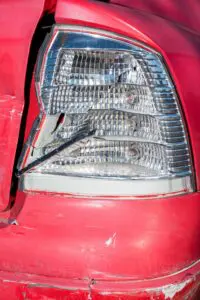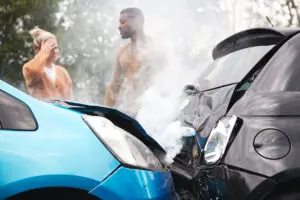The At Fault Driver Wants to Pay Out of Pocket. Should I Accept?
Medical bills. Repair costs. A painful recovery from your injuries.
These are just some of the potential consequences of a motor vehicle crash. If you’ve been injured in such a wreck, particularly one another negligent motorist caused, compensation may be available for your losses. The most common ways to recover it are to file an insurance claim or a lawsuit.
However, sometimes, the at-fault driver will offer cash immediately or shortly after an accident. Understanding the pros and cons of accepting a cash offer can help you better determine whether doing so is the best option now. For more information, contact Munley Law today and discuss your car accident case with a free consultation.
Understanding Out-of-Pocket Settlement Offers
There is no law in most other states requiring motorists to settle car accidents via traditional processes, such as insurance claims or lawsuits. Technically, it may be legal to accept cash at the scene of a wreck or in the days following a crash. That doesn’t necessarily mean doing so is advisable.
An at-fault driver may offer cash at the scene of a car accident for several reasons. The following are common examples:
- The driver is intoxicated, driving without a license, or otherwise breaking the law, and they wish to avoid legal penalties.
- A driver feels a seemingly minor accident can be more easily settled at the scene than by working through the insurance company.
- The at-fault driver may not have proper insurance.
- The driver might hope that, in the immediate aftermath of a wreck, you’ll be so focused on your safety that you’ll quickly accept a cash offer before taking the time to consider whether it’s enough.
- The driver fears involving insurance companies will cause their insurance costs to increase.
That’s not necessarily an exhaustive list. Drivers may have numerous reasons for offering cash at the scene or shortly after a wreck. Few of them are valid. It’s often wise to reject such offers and work through the proper channels (like an insurance company) when recovering compensation after a collision.

Reporting Requirements and Legal Obligations
Understand that failing to report an accident can have serious legal consequences. In Pennsylvania, for example, motorists must report accidents to police when there are injuries or deaths, or when vehicles require towing due to damage. Additionally, insurance companies typically have strict reporting requirements and deadlines.
Failing to meet these obligations could jeopardize your right to compensation, even if the other driver offers cash. Always check your insurance policy’s specific reporting requirements to protect your interests after an accident.
Received a cash offer after an accident? Contact Munley Law before accepting any payment.
The Hidden Risks of Out-of-Pocket Settlements
Accepting a cash offer instead of filing an insurance claim or lawsuit involves many potential risks. The following are among the more noteworthy:
- Undiscovered vehicle damage: The vehicle damage that’s immediately apparent at the scene of the accident may not be the total damage a vehicle has sustained. Internal components could have sustained damage that isn’t yet visible. If you let the at-fault driver pay out of pocket at the scene and you don’t collect their contact and car insurance company information, you may be on the hook for additional repair costs.
- Delayed injury symptoms: The fact that injuries seem minor after a car accident doesn’t necessarily mean they actually are. For example, the symptoms of a concussion or similar injury sometimes don’t become noticeable until hours or even days after a crash. Or, in the immediate aftermath of a traumatic experience, a victim could experience a surge of adrenalin that suppresses pain, making it seem as though they haven’t been seriously injured. If you accept cash and then experience delayed injury symptoms later, you might have limited means of receiving full compensation for your medical bills. While your own personal injury protection (PIP) coverage might help somewhat, the limits of your insurance policy could prevent it from offering all the help you need.
- Future medical complications: It can be difficult to predict how post-accident injuries will affect you in the long term. Before accepting a cash settlement, a victim should undergo a medical examination to determine the potential extent of future complications.
- Lost legal protections: The various legal protections that apply when you seek compensation through regulated means, such as insurance claims and lawsuits, don’t apply when you accept out-of-pocket payments.
Don’t risk your rights. Let Munley Law evaluate your accident case for free.
Legal Obligations After an Accident
Accepting cash at the scene could involve neglecting certain legal duties and similar requirements after a crash. They include:
- Insurance reporting requirements: Remember, your insurance policy (and that of the at-fault driver) may require you to report an accident within a certain timeframe to be eligible for compensation.
- State law requirements: States have laws dictating when drivers are legally required to report motor vehicle wrecks.
- Documentation necessities: Documenting the accident by contacting the police (and taking additional steps, like taking pictures and getting the contact information of witnesses) is key to gathering evidence you may need to present when seeking compensation.
- Potential consequences: The consequences of not fulfilling these requirements can vary depending on the circumstances. For example, if you fail to document the scene properly, you might struggle to establish causation and liability, rendering it difficult for you to collect what you deserve. You could also face criminal penalties if you don’t report an accident to the police.
Unsure about your legal obligations? Contact Munley Law for expert guidance.
When Cash Settlements Might Make Sense
There are rare instances in which letting someone pay out of pocket after an accident may be acceptable. They include the following:
- Minor damage scenarios: Letting someone pay out of pocket could be reasonable if the damage is extremely minor or cosmetic. Just remember that it can be difficult to gauge the full extent of the damage at the scene.
- Single-vehicle accidents: You might receive a fair cash offer after a minor single-car accident.
- Known repair costs: If you’re relatively familiar with motor vehicles and can accurately estimate repair costs based on your assessment of the damage at the scene, you may accept cash if you can confidently say it’s enough to cover your bills.
There are some potential benefits when you don’t have to involve insurance or other such parties after a crash. They include:
- Saving time
- Potentially avoiding increases in insurance premiums
- Receiving a settlement immediately
- Not having to document your losses, negotiate with insurance adjusters, etc.
Need help evaluating a settlement offer? Let Munley Law protect your interests.
Critical Steps Before Accepting Cash
 Taking certain essential steps to preserve evidence immediately after an accident can help you improve your chances of receiving compensation, regardless of whether you get insurance involved. Taking these steps is particularly important before accepting a cash offer:
Taking certain essential steps to preserve evidence immediately after an accident can help you improve your chances of receiving compensation, regardless of whether you get insurance involved. Taking these steps is particularly important before accepting a cash offer:
- Document everything: Thoroughly photograph or film the scene of the accident, capturing it from multiple angles to depict all the damage and contributing factors that are still evident.
- Assess all damages: Carefully check all visible and accessible areas of your vehicle to ensure you thoroughly understand the extent of the damage. This includes checking the interior. If the driver wants to pay cash, remember there may be internal damage you can’t see.
- Get medical evaluation: NEVER assume your injuries are minor simply because you’re not experiencing significant injury symptoms after a crash. Always keep in mind that symptoms can be delayed. Before accepting cash, see a doctor to learn more about your condition and any treatment you might require.
- Consider future impacts: The long-term impacts of a wreck can be more significant than you might initially realize. For example, even seemingly minor injuries might result in long-lasting complications that limit your ability to do your job. Or, your injuries may require ongoing treatment you haven’t considered. Think about these matters before accepting what the at-fault driver offers at the scene or in the days after.
You certainly don’t have to accept cash without thinking about it. Before accepting cash, get a free consultation with Munley Law.
Insurance Claims vs. Out-of-Pocket Settlement
Consider the following points when evaluating the pros and cons of a cash settlement vs. the settlement you may receive via an insurance claim:
- Coverage benefits: The robust coverage of an insurance policy may offer greater compensation than another driver could possibly offer in cash.
- Long-term protection: The settlement you receive from an insurance company may be more likely to account for the long-term impacts of a crash than the settlement you may receive via a cash offer.
- Claim process advantages: The claims process involves investigating a car accident and gathering evidence. Steps like these can uncover additional losses for which compensation may be available.
- Insurance company resources: A large insurance company has the resources to provide more compensation than you would be likely to receive from an individual motorist.
Protecting Your Rights After an Accident
 Just as there are steps you can take to preserve evidence shortly after a collision, taking additional steps can help you protect your rights to compensation. These steps include:
Just as there are steps you can take to preserve evidence shortly after a collision, taking additional steps can help you protect your rights to compensation. These steps include:
- Evidence preservation: Make copies of evidence when you can (such as photos of the accident) and store all evidence safely.
- Medical documentation: Seek medical care on the day of a wreck, save copies of all medical bills and records, and make sure you continue following recommended treatment plans. Ask your doctors if they can also provide statements documenting your injuries.
- Witness statements: Get witness names and contact information at the scene. If they’re willing to give written or filmed statements at the scene, make copies of these, and make sure you still get their contact info.
- Legal timeframes: Time is critical after a car accident. Each state has strict deadlines, called statutes of limitations, for filing a lawsuit. Missing this deadline means you could permanently lose your right to seek compensation. To protect your legal rights, consult with an attorney as soon as possible after the accident. Call Munley Law.









